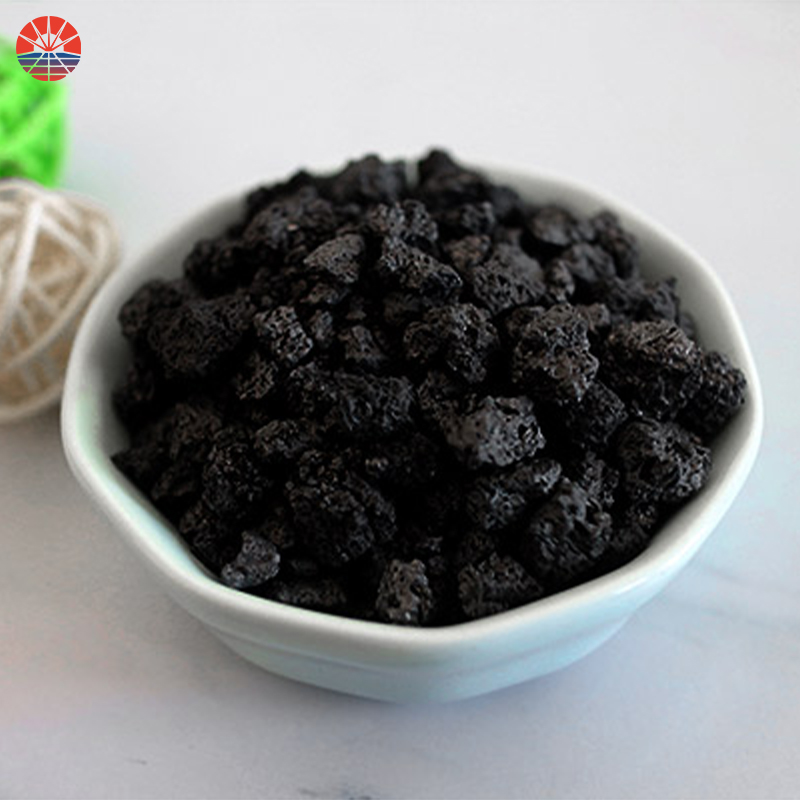Graphitized Petroleum Coke As Recarburizer
Using graphitized petroleum coke (GPC) in the production of pre-baked anodes for the aluminum industry offers several benefits. Here are some of the key advantages:
High Carbon Content: GPC typically has a high carbon content, usually above 98%. This high carbon content ensures a sufficient carbon supply in the anodes during the aluminum smelting process. It helps maintain the desired carbon-to-alumina ratio, which is crucial for efficient aluminum production.
Superior Electrical Conductivity: GPC possesses excellent electrical conductivity due to its highly ordered graphitic structure. This property allows for efficient electron transfer during electrolysis in the Hall-Héroult process. Enhanced electrical conductivity of GPC contributes to reduced energy consumption and improved overall performance in aluminum smelting.
Thermal Stability: GPC exhibits high thermal stability, allowing it to withstand the extreme temperatures and harsh chemical environment inside the electrolytic cell. The use of GPC in pre-baked anodes helps maintain the structural integrity and longevity of the anodes during the demanding smelting process. It resists degradation and ensures consistent anode performance over extended periods.
Low Impurity Content: GPC is processed to have low levels of impurities, such as sulfur, metals, and volatile matter. Low impurity content is crucial to avoid unwanted reactions, reduce anode consumption, and maintain the purity of the aluminum produced. GPC's low impurity profile contributes to improved metal quality and reduced environmental emissions.
Good Mechanical Strength: The graphitic structure of GPC imparts good mechanical strength to the anodes. This strength is crucial during handling, transportation, and insertion into the electrolytic cell. Anodes made with GPC are less prone to breakage or damage, leading to improved operational efficiency and reduced downtime.
Consistent Quality: GPC production involves controlled processes, ensuring consistent quality from batch to batch. This consistency is essential for achieving predictable anode performance and maintaining consistent aluminum production. Manufacturers can rely on GPC's consistent quality to meet their anode specifications and optimize smelting operations.
Optimized Anode Performance: The combination of high carbon content, excellent electrical conductivity, thermal stability, low impurity levels, and good mechanical strength in GPC contributes to optimized anode performance. Anodes made with GPC exhibit improved current efficiency, reduced anode consumption rate, and enhanced aluminum quality, ultimately resulting in more efficient and cost-effective aluminum production.
Overall, the benefits of using graphitized petroleum coke in pre-baked anodes include improved electrical conductivity, thermal stability, low impurity content, consistent quality, mechanical strength, and optimized anode performance. These advantages contribute to efficient and sustainable aluminum production in the Hall-Héroult process.
Graphitized petroleum coke Role in prebaked anode
Graphitized petroleum coke plays a crucial role in the production of prebaked anodes for the aluminum smelting industry. Prebaked anodes are a key component used in the electrolytic process of aluminum production, where they serve as conductive carbon blocks that transfer electrical current to the electrolytic cell.
Here's how graphitized petroleum coke contributes to the production of prebaked anodes:
Carbon Content: Graphitized petroleum coke has a high carbon content, typically above 98%. This high carbon content is essential for prebaked anodes as it provides the necessary electrical conductivity required for the aluminum smelting process. The graphitization process, which the petroleum coke undergoes, increases its carbon content and improves its electrical conductivity.
Thermal Expansion and Contraction: Prebaked anodes are subjected to extreme temperatures during the aluminum smelting process. Graphitized petroleum coke has a low coefficient of thermal expansion, meaning it expands and contracts less with temperature changes compared to other carbon materials. This property helps to maintain the structural integrity of the anodes under thermal stress, reducing the risk of cracking or breakage.
Chemical Stability: Graphitized petroleum coke exhibits excellent chemical stability, even at high temperatures. It is resistant to chemical reactions with molten aluminum, electrolyte, and other components in the electrolytic cell. This chemical stability ensures the longevity and performance of the prebaked anodes during the aluminum production process.
Mechanical Strength: The graphitization process enhances the mechanical strength of petroleum coke, making it more durable and resistant to mechanical stresses. This improved strength allows prebaked anodes to withstand the weight of the aluminum electrolyte bath and the various forces exerted during the smelting process.
Low Impurity Content: Graphitized petroleum coke has a low impurity content, including sulfur, nitrogen, and metals. These impurities, if present in higher amounts, can adversely affect the aluminum smelting process and the quality of the produced aluminum. The low impurity content of graphitized petroleum coke ensures the purity of the anode material and minimizes the potential for impurity-related issues during aluminum production.
Overall, graphitized petroleum coke provides the necessary electrical conductivity, thermal stability, mechanical strength, and chemical resistance required for prebaked anodes in the aluminum smelting industry. It contributes to the efficient and reliable production of high-quality aluminum products.
Specification
Production Line
Support All kinds of Third-party Testing
Shipping Method
Why REDSUN












